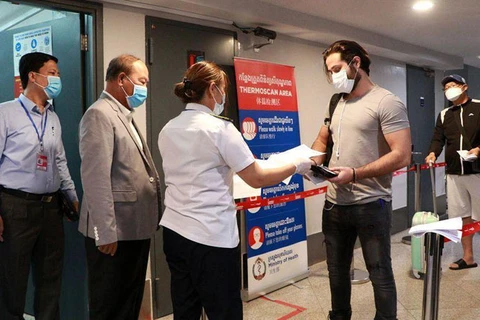Phnom Penh (VNA) - The Cambodian government has introduced the fourth round of measures to help the private sector, businesses, and workers who are severely affected by the COVID-19 pandemic.
The new measures are aimed at relieving the burden and improving the living standards of people with social assistance.
They take into account the crisis could end and economic activities will return to normal in the near future. At that time, the measures will focus on helping businesses recover and contribute to boosting the economy.
The so-called Round 4 Measures will cover many sectors including aviation, manufacturing, garment industry, banking and finance, agriculture, medical work, among others.
The Ministry of Economy and Finance in collaboration with the National Bank of Cambodia will seek the possibility to reduce and adjust terms and conditions to increase the cash flow in the banking sector./.


























